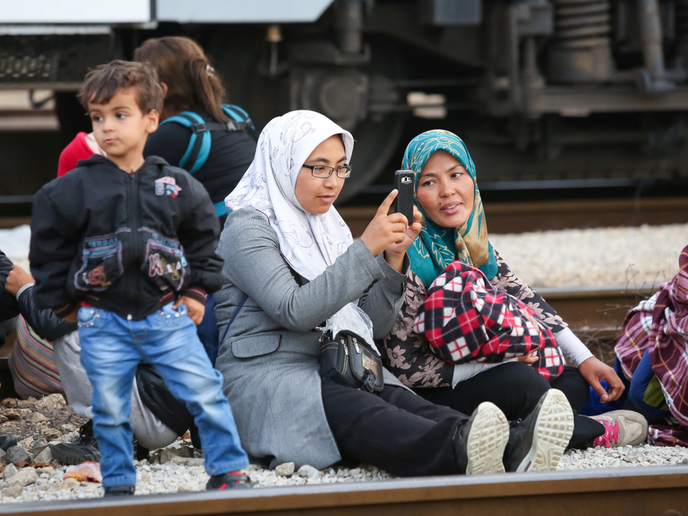Understanding how migrants connect is key to fostering understanding
As increasing numbers of women migrate to and within Europe – to be reunited with their families, to work, or to flee war zones – migration is becoming feminised. The use of communication technologies such as smartphones can play a vital role in their lives. They enable migrants to reach across borders, overcome language barriers and connect to new markets. “These technologies seem able to erase boundaries between nations, and transcend divides of race and gender,” says CONNECTINGEUROPE (Digital Crossings in Europe: Gender, Diaspora and Belonging) project coordinator Sandra Ponzanesi, professor of media, gender and postcolonial studies at Utrecht University in the Netherlands. “But while we all might embrace this idea of a globally connected citizen in a world free of borders, the recent migrant crisis of 2015 onwards has shown that our society also works very hard to keep people ‘in place’. We strengthen borders, patrol our coastlines and monitor the seas.” This disconnect between our conception of a digitalised, globalised world on the one hand, and the persistence of exclusion and marginalisation on the other, has been explored through the lived experience of migrants, especially women.
The connected migrant
The European Research Council-supported CONNECTINGEUROPE project, launched in 2016, focused on how social media connects migrant groups and provides tools for participation and emancipation. The research examined the experience of three migrant groups (Somalian, Romanian and Turkish) in three European cities (London, Amsterdam and Rome). “We wanted to counter the idea that migrants are digitally disenfranchised and disconnected,” adds Ponzanesi. “Not only do smartphones keep them connected, they also act as archives of photographs and memories. They are essential to a sense of selfhood and belonging.” Interviews were conducted with the different migrant groups in each city. One thing that became clear was that no group is homogenous, and intersectional issues and questions of scalability always need to be addressed. Nonetheless, some common interesting patterns did emerge. Among Turkish groups in London for example, declaring political affiliations online was avoided, in order to maintain conviviality and peaceful coexistence within the neighbourhood. Within young Somali groups, online connections with global youth culture were often as strong as links with their ethnic diaspora. “We also noted among all groups how mothers with children left behind use Skype, Facetime or other extremely cheap forms of communication to stay in touch,” explains Ponzanesi. “These technologies enable them to continue participating in daily routines, which lessens the feeling of separation.”
Unity in diversity
A key success of the CONNECTINGEUROPE project has been to underline the importance of the emotional pull of migration, as well as the emotional toll this can take. Academic examinations of migration have often focused solely on political and economic factors. This project provides a timely rectification of this. “We showed the ways in which connectivity is not just for the lucky few, but is accessible and available to all,” says Ponzanesi. “This challenges the notion that digital media are just for the wealthy, and that the literacy, skills and competencies needed are irreconcilable with migrants.” The project has also given insights into what migrant women are interested in, and what apps they use frequently. This creates an opportunity for policymakers. Tips and educational tools could be developed to make migrant women aware of online opportunities and threats such as online hate and hacking. Healthcare providers could tap into the power of social media, to help migrants overcome depression, loneliness and isolation. “Migrants and migration are not a problem to be solved, but a constitutive part of what Europe is and is becoming,” notes Ponzanesi. “A new understanding of online networks and diasporas, which breaks with the myth of Fortress Europe and reinvigorates that endangered European motto: ‘Unity in Diversity’, would be a fantastic legacy.”
Keywords
CONNECTINGEUROPE, migrants, migration, digital, smartphones, diasporas



